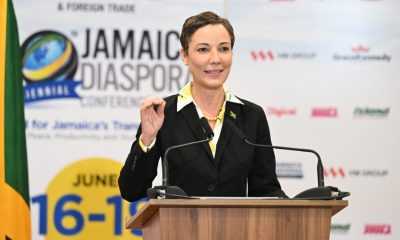BY PAUL JUNOR
On Tuesday, June 23rd, 2020, the provincial government released its new updated mathematics curriculum for Grade 1-8. Doug Ford has campaigned for a back to basic approach to mathematics education.
In December 2018 after public consultations with students, teachers, employers and organizations, the Ministry went ahead with plans in specific areas: improve student performance in STEM, prepare students with needed job skills, such as skilled trades and coding, and to ensure students graduate with important life skills, including financial literacy.
Premier Doug Ford noted, “I made a promise to parents that we would fix the broken system we inherited, get back to basics and teach our children the math fundamentals they need for lifelong success. Today, our government is delivering on that promise for the first-ever math curriculum in Canada for Grades 1-8 that includes the teaching of coding and financial literacy, both critical skills that will help our students prepare for and succeed in the modern world and in the modern workforce.”
The new elementary mathematics curriculum emphasizes changes to:
- Build understanding of the value and use of money through mandatory financial literacy concepts.
- For the first time, teach coding or computer programming skills starting in Grade 1, to improve problem solving and fluency with technology, to prepare students for jobs of the future.
- Use relevant, current, and practical examples so students can connect math to every day life.
- Put a focus on fundamental math concepts such as learning and recalling number facts.
These four areas are the foundation on which the math curriculum is built. They will propel the specific expectations or learning goals that students need to learn.
In addition, there will be five grade specific areas that the math curriculum is organized into. They are:
- Number: Students learn about the world of numbers and develop fundamental skills, including understanding basic number facts.
- Algebra: Students learn about patterns and algebraic expressions. Students analyze real-life situations using coding and apply the process of mathematical modelling.
- Data: Students learn how to collect, organize, display and analyze data to make convincing arguments, informed decisions and predictions.
- Spatial Sense: Students learn about measurement and geometry to help them describe and explore the world around them.
- Financial Literacy: Students will build their skills and knowledge about the value and use of money, how decisions impact personal finances, as well as develop consumer and civic awareness.
In the news release from the Office of the Premier on June 23rd, 2020, Minister Leece stated, “For over a decade, too many students were lacking everyday math, financial literacy and numeracy skills. The new curriculum will: help students solve everyday math problems, enshrine financial literacy in the early grades, and better prepare students for the jobs of tomorrow by ensuring students learn how to code.”
Dr. Christine Suurtamm who provided detailed background research reports to the Ministry of Education notes, “Ontario’s new mathematics curriculum builds on what we know about student learning, and how students develop an understanding of mathematics. It supports all students to be math learners with opportunities to learn foundation mathematics and engage in current topics. The goal is to support how students use math in the world today, and how they will use math to make informed decisions in the world ahead of them.”
The changes to the elementary math curriculum are the first since 2005 when it was last updated. The government has decided to move away from a discovery-based approach, which emphasizes problem solving, to rote learning, which emphasizes memorization. Many are concerned that the expectation that it will be implemented in September is too soon.
The fact that the school year was interrupted and elementary students may not have attained all their math learning goals makes the transition more challenging.
There is the expectation that students will acquire Social-Emotional Learning (SEL) and mathematical processes which the document spells out as students learn to, “Express and manage their feelings and show understanding of the feelings of others as they engage positively in mathematics activities.” This is intended to help students deal with math anxiety.
The Ministry of Education has committed to spending $10 million for broad-based math learning, $15 million for school-based math learning and $15 million to support release time for educators to become expertly familiar with the curriculum. $200 million was previously allocated on math strategy, which focused on a back-to-basics approach over a four-year time period.
The creation of a new curriculum and resources website make it easy for parents, teachers and kids to access the expectations in different grades and subjects. Students will now receive an overall mark in math, as well as comments on the different strands of the curriculum. This will help parents see the overall performance of their children.
In addition, the government has cancelled EQAO testing in, reading and math for Grade 3 and 6 students to give them time to learn the new curriculum. For parents/guardians who need more information they can access the government website at www.edu.gov.on.ca or online coding resources at Python.org.


 Community News2 weeks ago
Community News2 weeks ago
 Community News1 week ago
Community News1 week ago
 Community News1 week ago
Community News1 week ago
 Community News1 week ago
Community News1 week ago
 Community News2 weeks ago
Community News2 weeks ago
 Community News1 week ago
Community News1 week ago
 Community News2 weeks ago
Community News2 weeks ago
 Community News1 week ago
Community News1 week ago
























